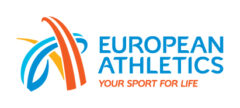Transportation services for a European Athletics event start with the first arrivals and end with the last departures. All official groups (Team members, VIPs, Media, Technical Partners and other members of the European Athletics Family) have to be provided with transportation when they arrive, during their stay and for their departures. The official period of operation of the transportation system is defined in the Organiser Agreement and varies from event to event.
The first impression upon arrival is the most important one, and delays in transportation are those most likely to be remembered. To be on time, and not late, must always be the target.
Transportation services are so important that often the entire reputation of the organisation depends on its efficiency. The European Athletics Transportation Guidelines should be studied carefully by the LOC Transport department.
Organising an efficient transport system is very challenging and can be difficult. Much of the information needed (numbers, times of arrival, etc.) may be received quite late and will be constantly changing. For these reasons, the transportation system needs to be managed by persons with practical experience and the ability to quickly and efficiently deal with unexpected and exceptional circumstances (and these will be happening frequently). Transportation staff need to be able to speak good English.
Transportation Plan
The transportation plan has to be prepared by the LOC according to the European Athletics Transport Guidelines and this has to be in alignment with the Accommodation Plan. The creation and implementation of the plan requires an experienced specialist.
The transportation plan must include provision for the movements of all categories of accredited participants, their baggage and equipment.
Although the transportation plan must be comprehensive, the system for each category of accreditation should operate independently of the others. The nature of each system will also depend on the circumstances. For example, if all the athletes are accommodated at a single location it is possible to run a shuttle bus service to the training and competition venues. If they are in separate hotels, a more complex system of schedules and dedicated vehicles may be required.
A date for the completion of the transportation plan will be fixed in the event Organiser Agreement. The plan should include milestones that can be monitored by the LOC and European Athletics.
Welcome Desks
The first impression upon arrival at the airport or official railway station is always the most important one and, therefore, a proper welcome service must be provided. Depending on the size of the event this may have to be arranged a long time in advance as agreements with these locations are needed.
What is normally expected to be found upon arrival:
- Welcome signs identifying the event
- Well located Welcome Desk(s) giving information about transport to the respective official hotels (according to the daily arrivals lists)
- Help to solve problems (lost luggage, collection of special equipment, etc.)
- Special services (e.g. Pole storage areas/deposit – please refer to the Competition Section, wheelchair services, etc.)
Communication
Communication within the transport management team (incl. drivers) and with all those that will be using the transport services is of great importance.
Transportation Desks or Transportation Offices should be set up wherever transport requests might be made (airport/hotels/competition venue/VIP areas/media areas, etc.). Where possible, these should be combined with the Welcome & Information desks.
The signage must be easily understandable and follow the corporate look of the event.
All relevant information concerning the transportation system and communication links needs to be planned and kept up to date.
Public Transportation System
At the European Championships and many other European Athletics events, it is customary for the Host City to offer all public transport (buses, trams, trains, metro/subway) free of charge on presentation of the event accreditation card. This is a valuable benefit and can supplement the organisers’ transportation system by providing a “safety net” and helping to reduce the number of personal transport requests that are made.
Information about the public transport system (including routes, maps and timetables) should be made available at the Transportation or Information Desks in the official hotels and team accommodation.
More details on transportation management can be found in the European Athletics Transportation Guidelines.
